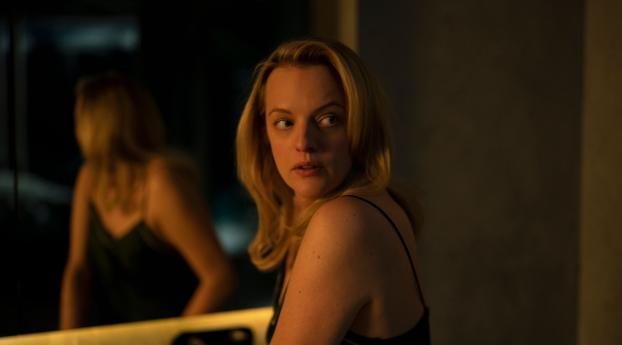
Latest in Hollywood’s ongoing campaign to find new and inventive ways to terrorize Elizabeth Moss is The Invisible Man. Directed and written by Leigh Whannell, whose previous writing credits include Saw and Insidious, this reboot of the 1933 Universal monster of the same name is a worthy tribute to its B-movie origins, which is exactly as high as you should let your expectations go.
After leaving her abusive and controlling ex-husband Adrian (Oliver Jackson-Cohen), Cecilia Kass (Elizabeth Moss) starts to suspect his subsequent suicide was a hoax as a series of freak accidents begins to tear her life apart. She soon becomes convinced that her late ex has figured out a way to turn himself invisible just to torture her, though convincing the people around her becomes just as taxing on her sanity as the torment itself.
This movie was originally slated to be part of the Universal “Dark Universe” extended storyline, a reboot of film’s first real slate of horror movies. That idea was better on paper and got scrapped after the disaster that was The Mummy (2017).
Thank God for that. Somewhere in the multiverse there’s a version of our reality where The Mummy was okay enough to let the Universal monsters reboot move forward as planned. I think the version of The Invisible Man that exists in that reality is a lot worse than ours. Whannell’s version feels like an independent project, drawing from a solid and classic premise without the pressure to stuff it down the feeding tube of a cash cow franchise.
Whannell’s biggest talent here is in his use of space. The minimalist camerawork asks you to pay close attention to the room he’s put you in, panning to empty and otherwise forgettable spaces where you can’t help but imagine the non-person who might be standing there. He skillfully places you in the weird position of looking for something you know isn’t there, the way you might have done as a kid staying home alone at night when you were absolutely sure someone was watching you. In a horror industry that frequently seems to forget that the monster is just as important as the room you put it in that attention to detail is refreshing.
Beyond the clever camerawork, though, this movie owes everything to Elizabeth Moss, whose acting genius is revealed in how she seemingly alchemically makes a compelling character out of a one-note battered wife. Moss is on her way to becoming a certified scream queen, with the talent it takes to elevate otherwise forgettable horror.
It’s an elevation that is desperately needed. The quality of Whannell’s direction and Moss’s performance implies a depth to The Invisible Man that I suspect is more optical illusion than actual substance. The shift from the original general-mayhem Invisible Man story to a domestic violence fable feels purposeful and potentially relevant, given the repeatedly proven ability of powerful men who lack any conscience to attack and terrorize women with no recourse.
Don’t be fooled though; this movie has nothing to say about that issue. The threat of the Invisible Man is more in line with the Michael Meyers tradition than any real person, a characteristic underscored by the fact that we don’t know anything about who he is, or even what he looks like, until the last ten minutes of the film. The lack of any substantive information about he and Cecilia’s relationship makes it impossible to relate it to any real situation of abuse. There are complications in abusive relationships that this movie, for all its railing against this most ultimate of gaslighters, doesn’t seem interested in talking about.
But is that necessary for this to be a good movie? Probably not. At its core this is probably more of a slasher movie than anything, visually impressive and clever, with good camerawork and performances. The effort that clearly went into this isn’t wasted. Just don’t go looking for a deeper meaning. Unlike Adrian Kass, it isn’t really there.




